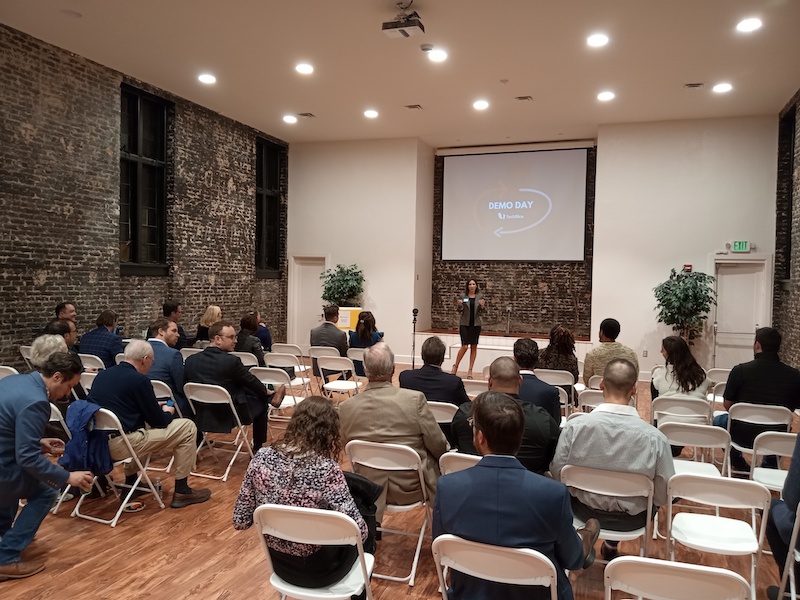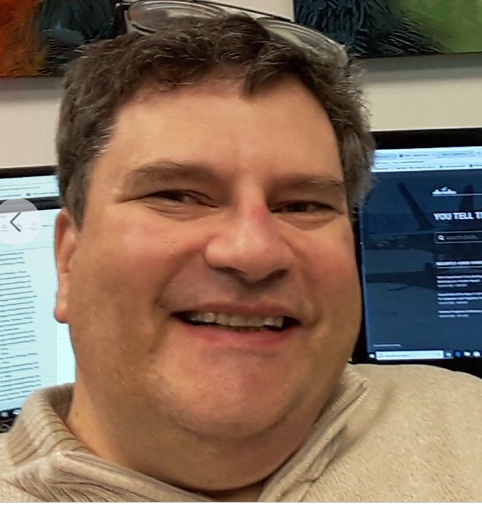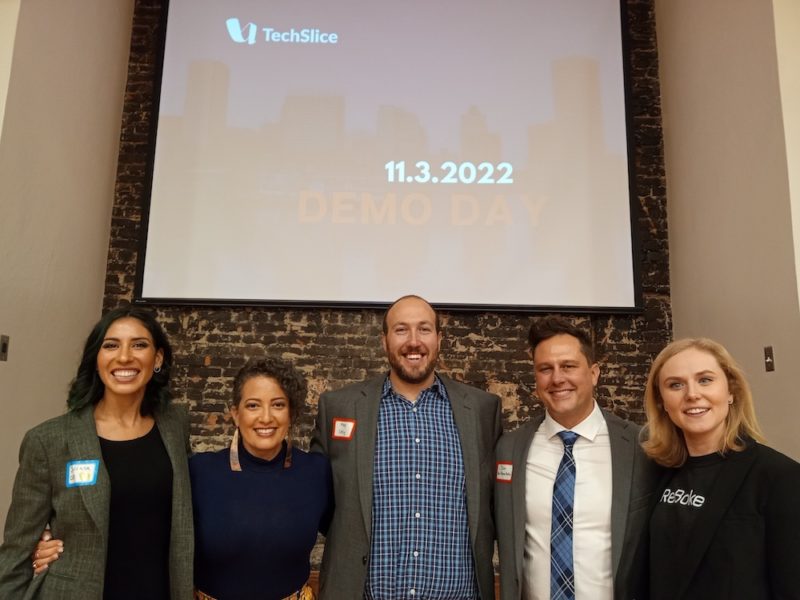Ventures tackling issues with evidence authentication and visual impairment aid were among the four that several dozen invitees learned about at TechSlice’s latest Demo Day event last week.
TechSlice, a software product agency that works with area entrepreneurs to grow, held the invite-only event at communications agency Warschawski’s headquarters in Mount Washington. The event is part of a recurring series of demo days that TechSlice hosts to highlight select local companies.
TechSlice CEO and 2022 RealLIST Connector Juliana Buonanno said she spends months determining who will appear before potential investors during the spring and fall events. She said this year’s spring event resulted in half of the presenters receiving funding. And all of the presenters received some form of valuable input from potential investors.
The spring Demo Day was open to a wider array of members of Baltimore business than this most recent one. Buonanno said that over 100 people had attended in the spring. But both events are meant to introduce potential investors to innovators under one roof. This month’s event kept presentation times relatively short, 10 to 15 minutes, while allowing more time for mingling.
“It’s like a friendly version of ‘Shark Tank,’ with whiskey,” Buonanno told Technical.ly.

Real Brave Audio
Daniel Powers Jr.’s Real Brave Audio already had multiple brick-and-mortar music lesson sites before the pandemic hit. But COVID-19 devastated his business. “The company I had built was burning down,” he told the audience. Instead of capitulating to the pandemic, Powers pivoted. He brought his business online, but found the ecosystem confusing and limited to watching videos. His Real Brave incorporates live, online instructors with prepared modules.
Powers said that while it can cost $46 to attract one student, moving his market from Baltimore to the whole world plugs him into millions of young people looking to learn.
“You’ll be surprised at how well virtual works if you do it the right way,” he said.
ForceField
MC Spano calls her company, ForceField, the blue checkmark for evidence and beyond. The social justice-minded presenter described a need to validate the large amount of video evidence admitted into American courts every year. She compared ForceField to DocuSign, the document verification service, and said that her company’s video authentication works by leveraging blockchain technology.
“Cameras are watching us,” Spano said. “Who is watching the cameras? We do. We audit.”
Spano plans to offer both app-based and organization-level subscriptions to the service.
ReBokeh
Rebecca Rosenberg of ReBokeh is a founder with a visual impairment. She never quite found an assistive technology that worked seamlessly for her, so she instead built app-based technology that is already helping ReBokeh’s client base. The tech offers visually impaired users patent-pending filters to help see objects better, as well as a zooming feature to enhance directions on outdoor signage. Rosenberg reported 925 downloads, with 25 to 50 new ones each week, in the 19 weeks ReBokeh has been available for iPhone.
Users regularly engage with the app for over 25 minutes, she said. She also recently took her company through Towson University’s StarTUp Accelerator.
But Rosenberg said that ReBokeh is more than an app. The company is working on informing machine learning processes with predictive algorithms r to more readily provide visual augmentation to clients.
“We want to be the go-to company for all things low-vision,” Rosenberg said.
Celcy
Max Weider of Celcy, a prior Technical.ly Awards nominee, presented the tech-based, turnkey meal creation system he and cofounder Eddie Holzinger created. Customers acquire a home appliance that acts as both a food storage and meal preparation unit. The unit can be activated to cook a meal from anywhere, using either an app or by telling Alexa to make something. Meals are preordered from a concierge chef service, flash-frozen and shipped to the customer. The trays are preloaded into the Celcy freezer and then, when prompted, automatically transferred to the unit’s cooking area.“When you want that meal, that meal is ready,” Weider said.
Before you go...
Please consider supporting Technical.ly to keep our independent journalism strong. Unlike most business-focused media outlets, we don’t have a paywall. Instead, we count on your personal and organizational support.
3 ways to support our work:- Contribute to the Journalism Fund. Charitable giving ensures our information remains free and accessible for residents to discover workforce programs and entrepreneurship pathways. This includes philanthropic grants and individual tax-deductible donations from readers like you.
- Use our Preferred Partners. Our directory of vetted providers offers high-quality recommendations for services our readers need, and each referral supports our journalism.
- Use our services. If you need entrepreneurs and tech leaders to buy your services, are seeking technologists to hire or want more professionals to know about your ecosystem, Technical.ly has the biggest and most engaged audience in the mid-Atlantic. We help companies tell their stories and answer big questions to meet and serve our community.
Join our growing Slack community
Join 5,000 tech professionals and entrepreneurs in our community Slack today!

The person charged in the UnitedHealthcare CEO shooting had a ton of tech connections

From rejection to innovation: How I built a tool to beat AI hiring algorithms at their own game

Where are the country’s most vibrant tech and startup communities?



